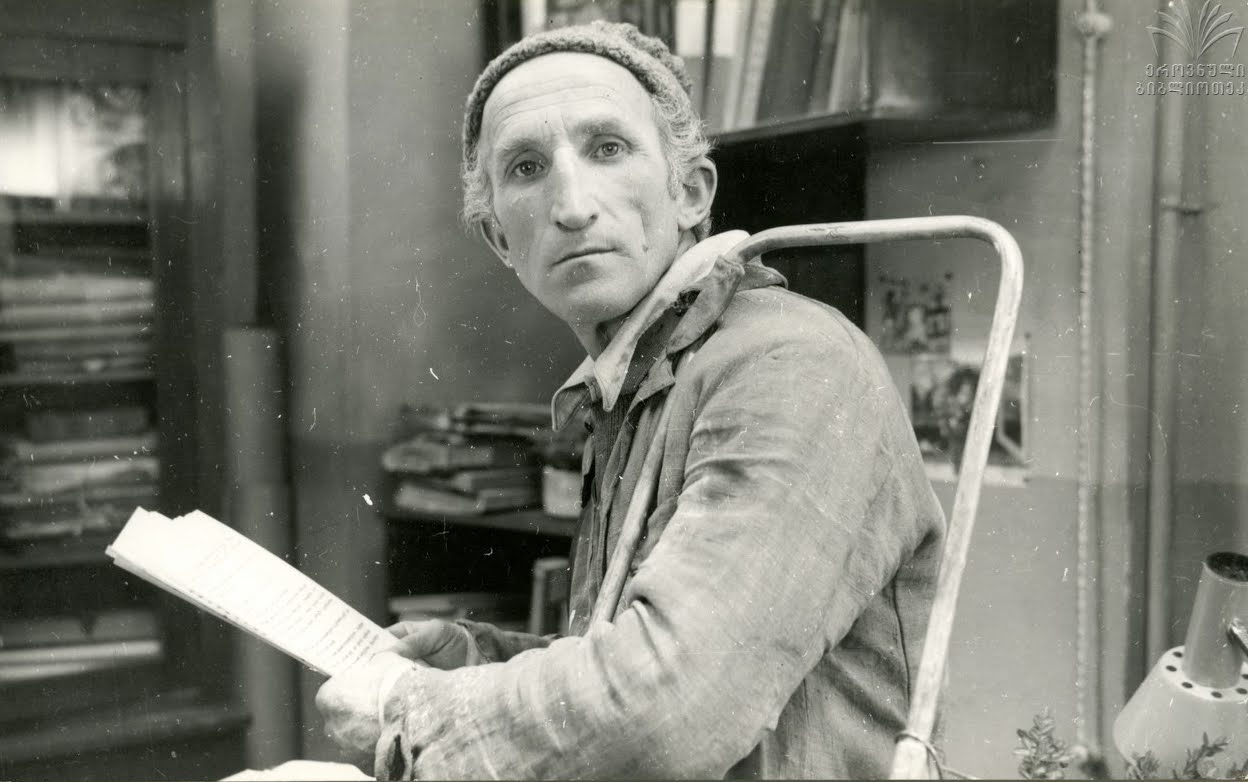Eldar Shengelaia’s “Blue Mountains, or Unbelievable Story”
Trick Track Trolling the Soviet System
DOI:
https://doi.org/10.17892/app.2025.00020.387Keywords:
Eldar Shengelaia, Gia Kancheli, Levan Paatashvili, Sesilia Takaishvili, Revaz Cheishvili, Kote Mikaberidze, Mikheil Kobakhidze, Gega Kobakhidze, Tengiz Abuladze,Iurii Bogolmolov, Bidzina Ivanisvili, Thea Tsulukiani, Soviet Union, Georgian GSSR, Blue Mountains, or Unbelievable Story, The Essentrics, An Unusual Exhibition, Repentance, My Grandmother, perestroika, zastoi, Georgian Dream Party, Bureaucracy, Absurd, Sovexportfilm, Georgian cinema, Georgian literature, national cinema, ელდარ შენგელაია, გია ყანჩელი, ლევან პაატაშვილი, სესილია თაყაიშვილი, რევაზ ჭეიშვილი, კოტე მიქაბერიძე, მიხეილ კობახიძე, გეგა კობახიძე, თენგიზ აბულაძე, იური ბოგომოლოვი, ბიძინა ივანიშვილი, თეა წულუკიანი, საბჭოთა კავშირი, საქართველოს სსრ, ცისფერი მთები ანუ დაუჯერებელი ამბავი, შერეკილები, არაჩვეულებრივი გამოფენა, მონანიება, ჩემი ბებია, პერესტროიკა, ზასტოი, პარტია ქართული ოცნება, ბიუროკრატია, აბსურდი, სოვექსპორტფილმი, ქართული კინო, ქართული ლიტერატურა, ეროვნული კინოAbstract
Eldar Shengelaia’s ცისფერი მთები ანუ დაუჯერებელი ამბავი / Tsisperi Mtebi Anu Daujerebeli Ambavi / Blue Mountains, or Unbelievable Story is as relevant in the current Georgian political context as it was when released on Georgian screens in 1983. This article examines the political context and critical reception surrounding the film, focusing on the visual, dramaturgical and filmmaking techniques – such as repetition, absurdity, and allegory – employed by the director to convey political commentary. However, an analysis of Shengelaia's earlier films, particularly არაჩვეულებრივი გამოფენა / Arachveulebrivi gamopena / An Unusual Exhibition and შერეკილები / Sherekilebi / The Eccentrics (1974), proves essential, as these works, alongside Blue Mountains, form the triad of his most significant contributions to cinema. A comparative study of these films is also vital for contextualising Iurii Bogomolov's landmark 1978 article, demonstrating key critiques regarding Shengelaia's oeuvre and the broader Georgian cinematic landscape. Bogomolov's essay catalysed dialogues between Georgian and Russian filmmakers, notably at the Iskusstvo kino editorial office in Moscow the same year. Georgian filmmakers perceived the article as criticism from an imperial centre, viewing it as an attack on Georgian cinema. Overall, this analysis prioritises the complex political and colonial environments surrounding Georgian cinema, recognising that any discourse on this subject devoid of historical associations is fundamentally reductive. Contemporary Georgian filmmakers increasingly reflect on Georgian cinema traditions, which, on its end, is complex, comprising both resistance narratives and opportunistic engagements. Young Georgian filmmakers address governing political elites using quotes from Shengelaia's works to advocate for creative autonomy. In the thirty-fourth year following Georgian liberation from Soviet occupation, these filmmakers are demanding what Eldar Shengelaia sought in the early stage of his creative career – freedom.

Downloads
Published
How to Cite
Issue
Section
License
Copyright (c) 2025 Apparatus. Film, Media and Digital Cultures of Central and Eastern Europe

This work is licensed under a Creative Commons Attribution 4.0 International License.
The articles in Apparatus are published under https://creativecommons.org/licenses/by/4.0/ This license does not apply to the media referenced, which are subject to the individual rights owner's terms.
The authors hold the copyright without restrictions and retain publishing rights without restrictions.





